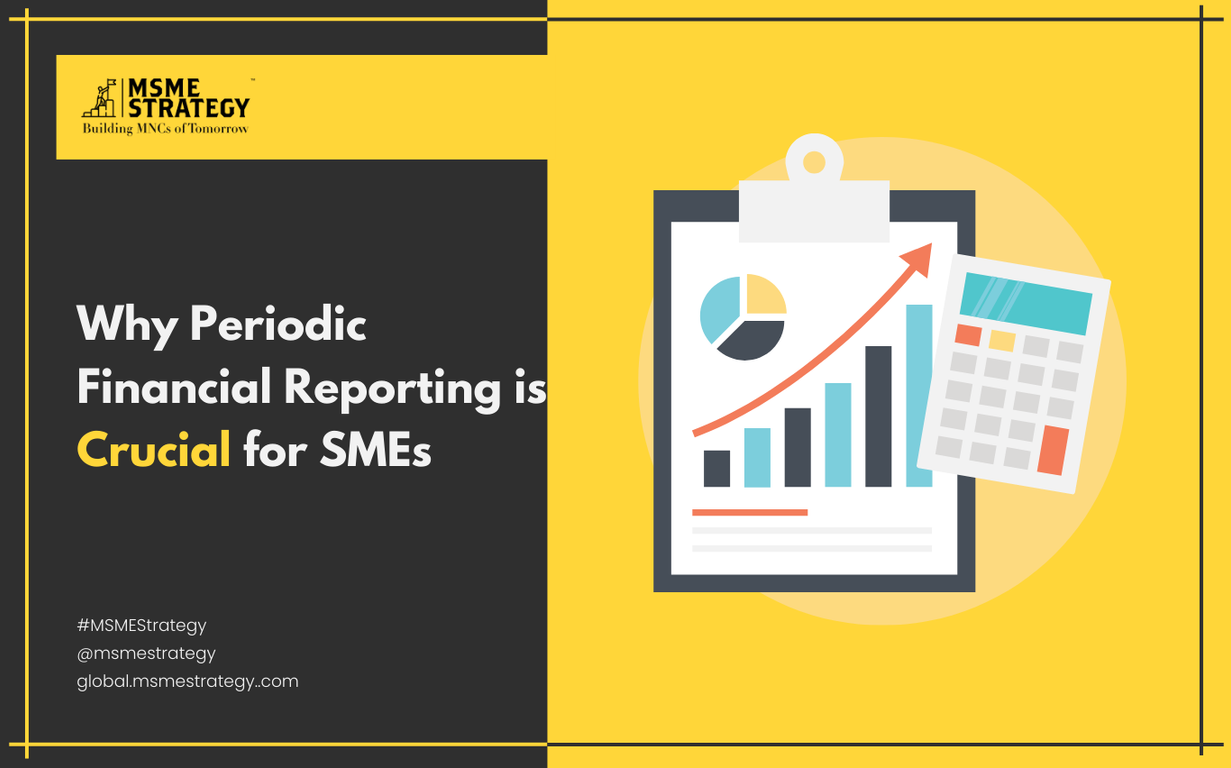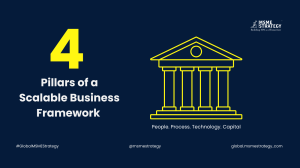In today’s fast-paced business environment, periodic financial reporting is a critical practice for SMEs worldwide. This practice not only ensures transparency and compliance but also provides valuable insights that drive informed decision-making and strategic planning.
What is Periodic Financial Reporting?
Periodic financial reporting refers to the regular preparation and presentation of financial statements, typically on a monthly, quarterly, or annual basis. These reports include:
- Income Statements: Showing profitability over a specific period.
- Balance Sheets: Reflecting assets, liabilities, and equity.
- Cash Flow Statements: Monitoring inflows and outflows of cash.
Such reports provide stakeholders—business owners, investors, and lenders—with crucial data to assess the company’s performance and make informed decisions.
Common Challenges faced by SMEs in Financial Reporting
SMEs often encounter a variety of challenges in financial reporting, which can impact their ability to make informed decisions and maintain financial health. Here are some common challenges:
1. Limited Resources: SMEs often operate with constrained financial and human resources. This limitation can affect their ability to hire qualified accounting professionals or invest in advanced financial reporting software.
2. Complexity of Regulations: Navigating the complex and ever-changing landscape of financial regulations can be daunting for SMEs. Different countries have varying reporting standards and compliance requirements, making it challenging for SMEs operating in multiple jurisdictions.
3. Accuracy and Reliability: Ensuring the accuracy and reliability of financial data is a significant challenge. Manual data entry, lack of standardized processes, and limited internal controls can lead to errors and inconsistencies in financial reports.
4. Time Constraints: SME owners and managers often juggle multiple responsibilities, leaving limited time for thorough financial reporting. This can result in rushed or incomplete reports, which may not provide a true reflection of the business’s financial health.
5. Technology Adoption: While advanced financial technologies can streamline reporting processes, SMEs may struggle with adopting and integrating these tools. Limited IT expertise and resistance to change can hinder the effective use of financial technologies.
6. Cash Flow Management: SMEs often face cash flow challenges, making it difficult to manage working capital effectively. Inaccurate or delayed financial reporting can exacerbate cash flow issues, leading to liquidity problems.
7. Lack of Financial Literacy: Business owners and managers may lack the necessary financial literacy to interpret financial reports accurately. This gap can hinder their ability to make informed decisions based on financial data.
8. Data Security: Protecting sensitive financial information from cyber threats is crucial. SMEs may have limited resources to invest in robust cybersecurity measures, making them vulnerable to data breaches and financial fraud.
9. Forecasting and Planning: Accurate financial forecasting and planning are essential for growth and sustainability. SMEs may struggle with creating reliable financial projections due to limited historical data and market uncertainties.
Actionable Points to Overcome Challenges
1. Invest in Accounting Expertise: Hire qualified accounting professionals or engage with external consultants to ensure accurate and reliable financial reporting.
2. Stay Updated on Regulations: Regularly review and stay informed about financial regulations and compliance requirements in all operating jurisdictions.
3. Standardize Processes: Implement standardized financial reporting processes and internal controls to minimize errors and inconsistencies.
4. Leverage Technology: Adopt advanced financial technologies and tools to streamline reporting processes and enhance accuracy.
5. Enhance Financial Literacy: Invest in financial literacy training for business owners and managers to improve their understanding and interpretation of financial reports.
6. Focus on Cash Flow Management: Implement effective cash flow management strategies to ensure liquidity and financial stability.
7. Prioritize Data Security: Invest in cybersecurity measures to protect sensitive financial information from potential threats.
8. Develop Reliable Forecasts: Use financial data and market insights to create accurate financial forecasts and strategic plans.
Overcoming these challenges can help SMEs improve their financial reporting practices, enabling them to make informed decisions and achieve sustainable growth.
Latest Trends in the SME Sector
- Digital Transformation: The acceleration of digital transformation post-pandemic has reshaped the MSME landscape, offering new opportunities for growth while demanding rapid adaptation. Digital tools and platforms enable SMEs to manage data, optimize workflows, and reduce costs.
- Sustainability and Green Practices: There is an increasing focus on adopting sustainable practices to cater to consumer needs and reduce the carbon footprint. SMEs are investing in environmentally friendly practices to support sustainable growth.
- Financial Inclusion: Policies supporting financial inclusion enable underserved communities’ SMEs to access affordable loans and other financial services, propelling their expansion and economic growth.
- Industry Collaboration and Partnerships: Collaborative efforts among SMEs, industry players, and large organizations foster knowledge sharing, market expansion, and mutually beneficial relationships.
At MSME Strategy Consultants (global.msmestrategy.com), our experienced consultants are ready to help you implement effective financial reporting practices that enhance decision-making and support your business growth.
#FinancialReporting #SMEFinance #BusinessGrowth #MSMEStrategy #CloudAccounting #Sustainability #SMEInnovation






